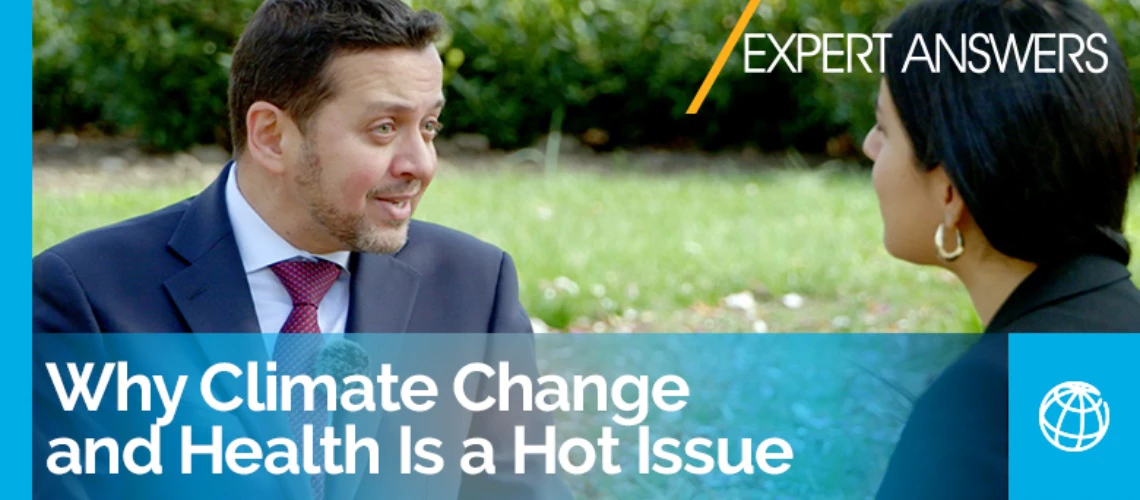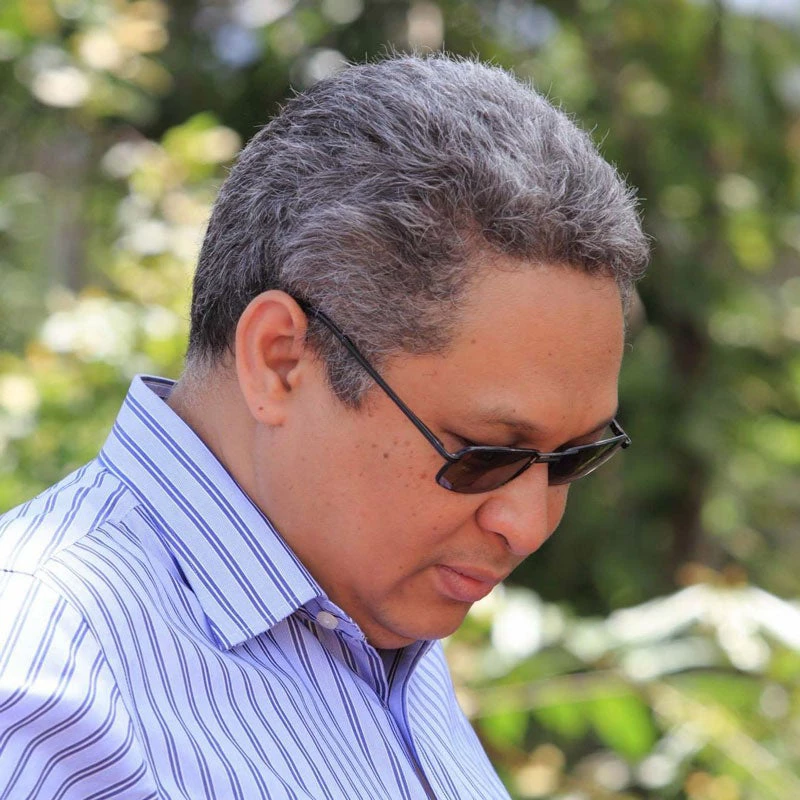 Tamer Rabie, Global Program Lead for Climate and Health at the World Bank, explains why it’s important to strengthen health systems to address the impacts of climate change. Copyright: World Bank
Tamer Rabie, Global Program Lead for Climate and Health at the World Bank, explains why it’s important to strengthen health systems to address the impacts of climate change. Copyright: World Bank
An estimated 21 million people could lose their lives by 2050 and 44 million could be pushed into extreme poverty by 2030 if no action is taken on climate change. These are alarming figures illustrating the devastating direct and indirect impacts that climate change is having on people’s health.
Tamer Rabie is the Global Program Lead for Climate and Health at the World Bank, and he has been leading the Bank’s efforts to tackle the problem.
Rabie explains that it is key to strengthen countries’ health systems so they are fit to respond to the increasing health threats triggered by climate change. “When it comes to the impacts that we're seeing from the climate crisis on health, there's no question that we need to be able to deal with the lives that we're losing now. We need to be able to put in place systems that can cope with what's to come into the future.”
The World Bank is currently the largest investor in health systems across the world, with an active portfolio of nearly $36 billion and more than 200 projects in over 100 countries. In this video, Rabie provides concrete examples of the World Bank in action in three countries: Madagascar, Yemen and India. However, he emphasizes that the climate crisis is massive, requiring collective action and partnerships which are core and integral to address the major challenges ahead.
Watch the interview for more insights.


Join the Conversation